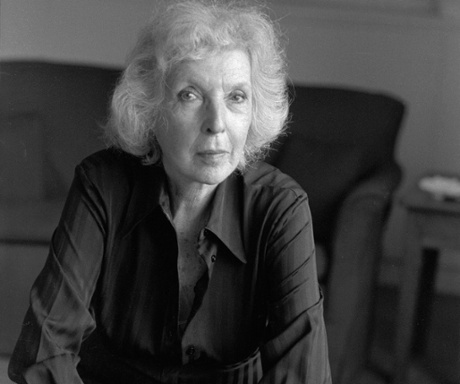
| Home | Walks, Talks & News | Village History | Places of Interest | Resources | Join Us |
A short biography of Martha Gelhorn written by Nancy Cavill who has researched the lady's journalistic and personal life, I hope you find it interesting.
Martha Gellhorn 1908-1996

Photo Copyright://phiquyenchinh
Martha Gellhorn lived for 14 years in Yew Tree Cottage (she named it Catscradle during her time living there), in Kilgwrrwg between Devauden and Shirenewton from 1980 to 1994.
Gellhorn was a renowned war reporter and journalist who was once married to Ernest Hemmingway but is best known for her own work as a fearless, independent-minded journalist. She was born in St Louis, Missouri in 1930 and died, aged 89, on February 17, 1998 in London.
She covered the great conflicts of the 20th century - the Spanish Civil War, the Normandy landings in World War Two, the aftermath of the war in Hitler’s concentration camps, Vietnam, the Middle East and carried on reporting well into her 80s.
She made Britain her home after World War Two. Her connection with Wales is little known but she came to live in Cat’s Cradle in 1980 while based in London. The cottage was her ‘country retreat’ but a place where she wrote every day and also developed a passion for gardening and cooking. She took regular exercise in her small, indoor heated swimming pool.
She only reluctantly gave up living at the cottage, aged 84, after saying she was too old to ‘haul dustbins up the drive’. She is quoted as saying, “I've loved my time in Wales; the people are the friendliest in the world but the weather is generally filthy. I want to spend more time where it is warmer."
In the twilight of her career when asked by the BBC to report on any subject she wished to for a new series of foreign writers' views of Britain, Gellhorn, then 88, chose to revisit the scene of her last major piece of front-line reporting - in the village of Newbridge, near Risca in the Gwent Valleys, where she watched the Miners' Strike of 1984-85 unfold.
Gellhorn reported on the Miners’ Strike for The Guardian and described being driven around the Valleys in a jolting, beaten-up old van talking to miners and their wives, watching charity workers prepare meagre food parcels for their families, witnessing at first hand how the then Prime Minister's determination to defeat the union was destroying a community's way of life.
Some of the most memorable reports of her career were during World War Two when she was the only women reporter to land on the D-Day beaches and one of very few women to report from former German concentration camps. The scenes she saw in Dauchau were deeply etched in her memory forever after.
She later covered the Vietnam War and the Arab-Israeli conflict in the Middle East. She continued to work and travel the globe into her 80s. Her war reporting always focused on telling the stories of the victims of war – the displaced, the refugees, the tortured – rather than the politics.
As well as her war reporting, Gellhorn also wrote five novels, 14 novellas and two short story collections. The Martha Gellhorn prize for journalism is awarded annually to journalists whose work has appeared in reputable English-language publications.